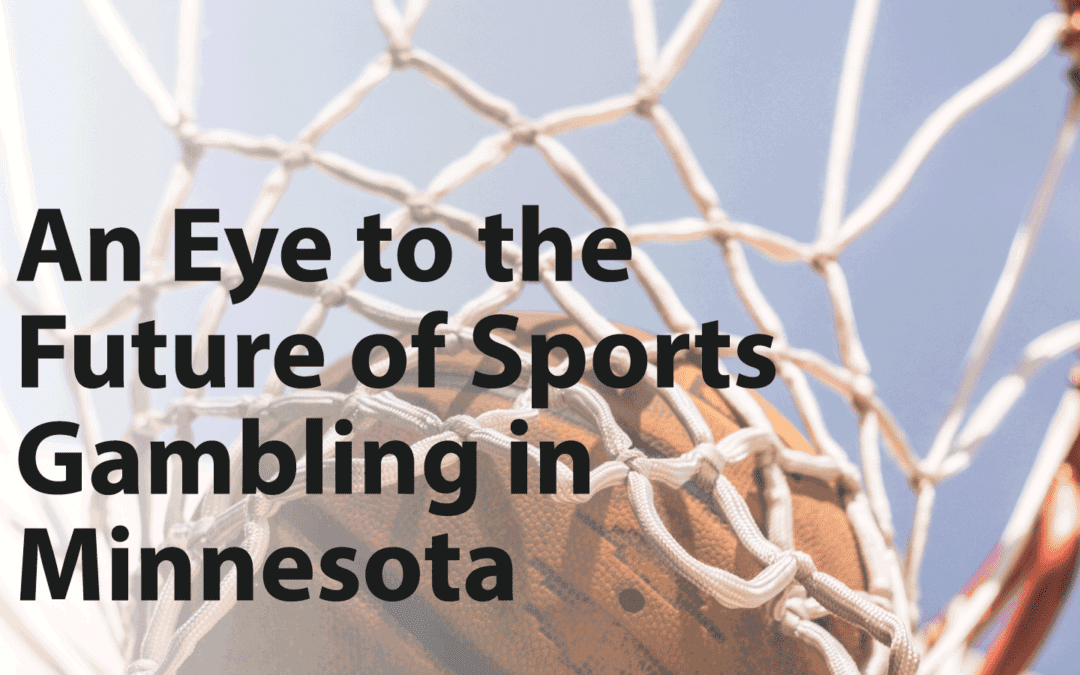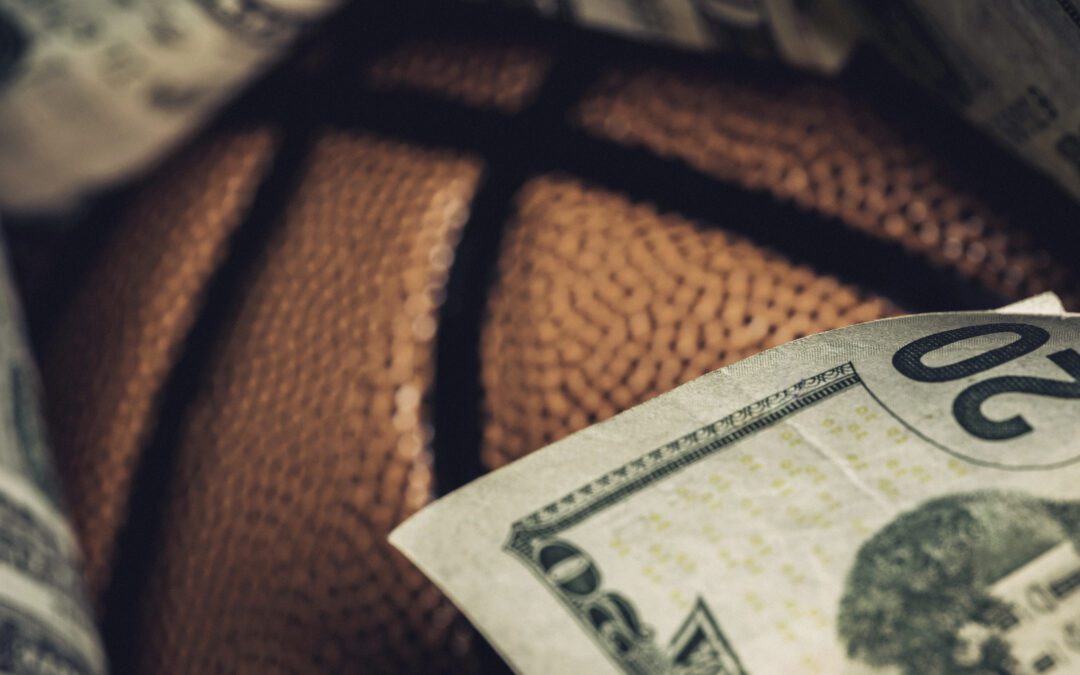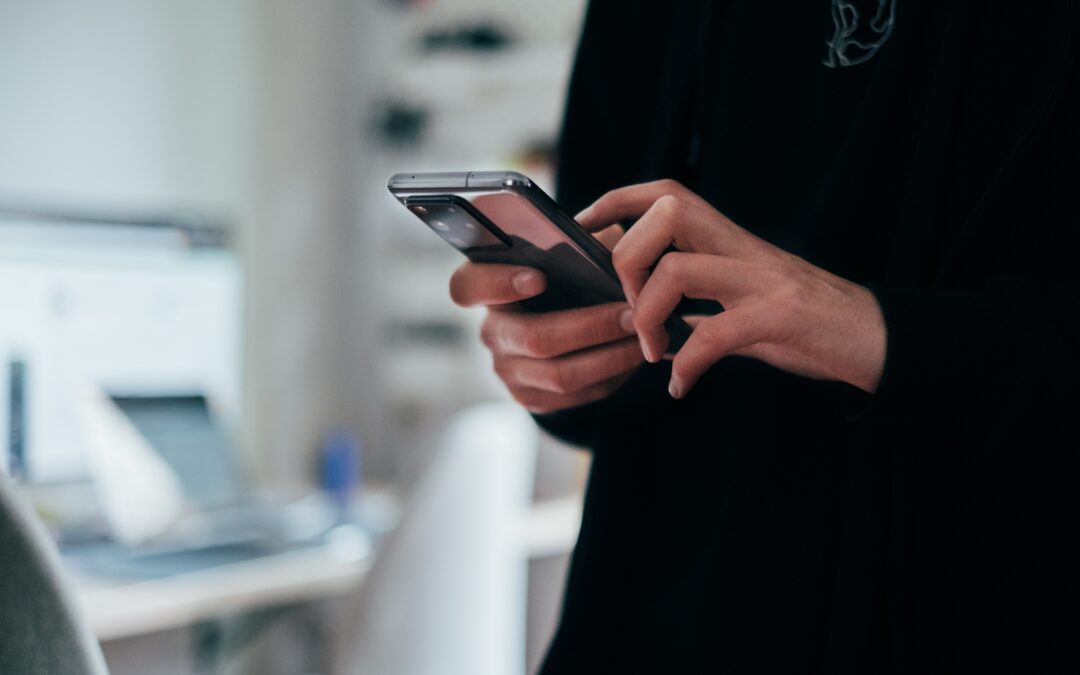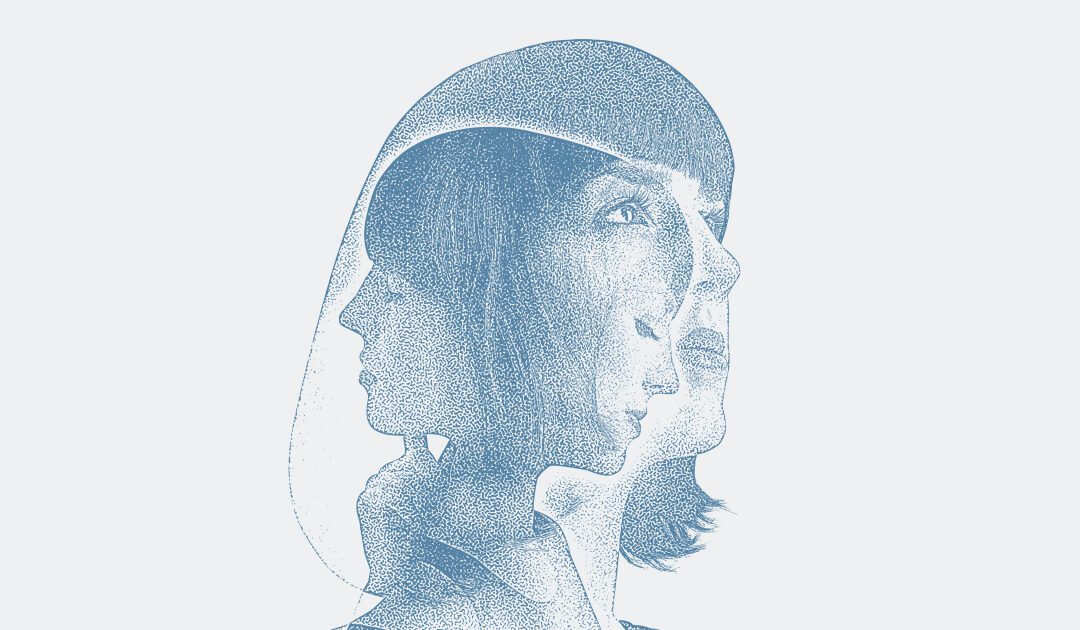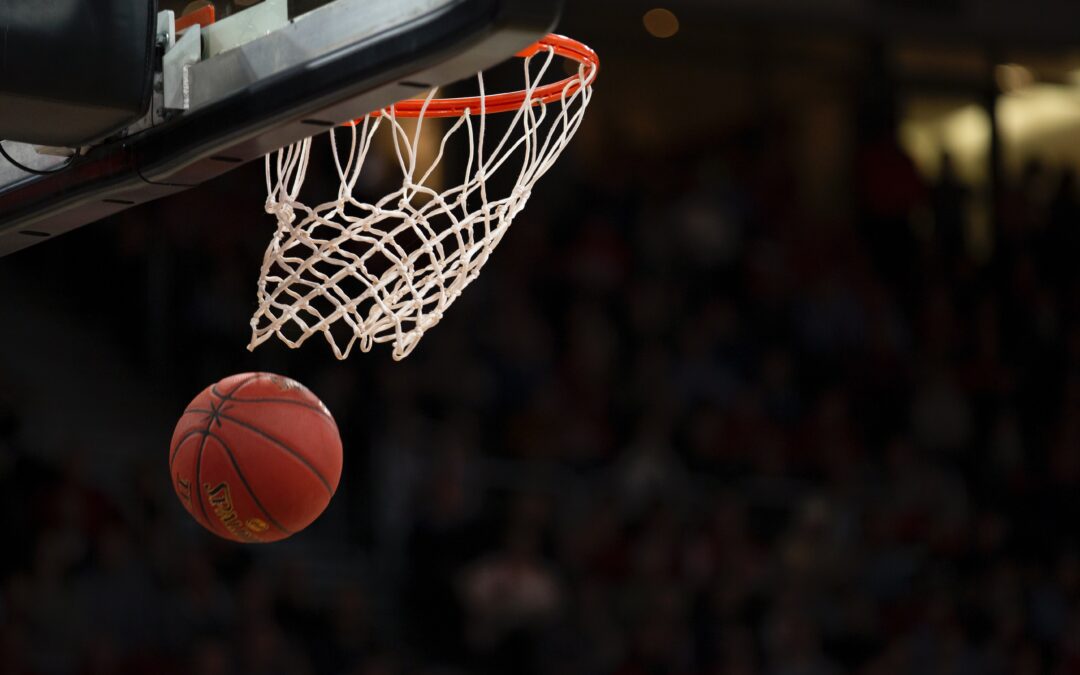
Nov 29, 2023 | SPORTS BETTING
Although Minnesota did not pass a bill legalizing sports gambling during the last session, many think it’s just a matter of time before it happens. With an eye toward the future – and an eye on the experiences of several other states who have legalized sports gambling – we talked to problem gambling leaders in New Jersey and Michigan for their observations and warnings. (The Summer 2023 issue of Northern Light highlighted the sports gambling experiences of Ohio and Pennsylvania.)
New Jersey
In New Jersey, where brick-and-mortar gambling has existed since 1978, online gambling was legalized in 2013. Sportsbooks became legal in 2018, leading to a dramatic increase in sports gambling.
Among other notable changes is the increase in gambling advertising, which has “bombarded the public,” according to Felicia Grondin, executive director of the Council on Compulsive Gambling of New Jersey (CCGNJ). She notes that the gambling industry’s advertising was $292 million in 2020 and $725 million a year later.
CCGNJ has worked with the state to regulate gambling advertising. The New Jersey Division of Gaming Enforcement (DGE) has begun a new responsible gambling initiative whereby operators must abide by certain requirements, including the frequency of advertising and font size (to ensure visibility of problem gambling helpline information). CCGNJ has also been advocating for a PSA-type ad that will inform the state’s residents of the potential for gambling harm.
Increase in Calls for Help
Calls to the state’s problem gambling helpline are up dramatically. Of the increase in helpline calls, 20 percent are related to sportsbooks and 27% are related to online play, a considerable portion of which is presumed to be related to sports gambling. There’s been a reduction in general calls from people asking where to find casinos, what winning numbers are for the lottery, etc., but calls have increased from those who need help with a gambling problem. “I think the public is starting to understand more about the purpose of our 800GAMBLER helpline and how it works,” says Felicia.
Effective Communications with State Legislature
CCGNJ has also put an emphasis on communications with the state legislature, which Felicia says has proven fruitful. They engage legislators on various problem gambling topics through visits to the statehouse and bi-monthly blogs. Thanks to these efforts, the state has been more deliberate in its approach to gambling. One example is reducing a ten-year extension for online gambling to five years. “Legislators are recognizing that people are developing gambling problems and the importance of monitoring its related impact,” says Felicia.
Educating School Students
Shortly before the state assembly introduced a bill to require schools to provide instruction on the risks of gambling, as they do with other public health issues, the CCGNJ created the Cognitive Perspective Restructuring program (CPR). The program educates kids about risky behavior, including gambling, and how to make wise choices for a bright future.
As it relates to Minnesota, Felicia cites several things that our state should think about as it considers legalizing sports gambling:
o Establish parameters around advertising — frequency, the content, where it’s aired, etc.
o Post warning labels at brick-and-mortar locations as well as online.
o Ensure that students are educated about the risks of gambling at an early age.
o Produce public service announcements to create greater awareness.
o Request an increase in problem gambling funding commensurate with expected growth in gambling.
Michigan
Michigan officially legalized sports betting in December 2019. The first retail sportsbooks in the state opened in March 2020 and the online launch took place in January 2021.
The growth in sports gambling echoes the growth occurring around the nation. In September 2023, Michigan sportsbooks tallied $457.7 million in bets for the month. This represents a 25.6% increase from September of 2022.
With the availability of online gambling, Michael Burke, executive director of the Michigan Association on Problem Gambling, says it’s as though Michigan has gone from 34 casinos to a state that has 10 million casinos in the pockets of each resident. “It used to take people five to ten years to get addicted, but with easier access now, it’s more like five to ten months,” he says. Michael also is concerned about the impact of easy access on youth gambling and says that educating kids about the risks is vital.
According to the Michigan Department of Health and Human Services, in the first year since the legalization of sports betting and online gambling in Michigan, more than 4,400 calls were made to the state’s problem gambling helpline in 2021. This was nearly triple the number of calls received in 2020, the year before online gambling was approved. Referrals for people to receive gambling treatment also grew significantly, from 295 referrals in 2020 to 420 referrals in 2021, a 42% increase.
As Michael looks to a state (such as Minnesota) that hasn’t yet legalized sports gambling, he has a warning. “If you’re going to bring in gambling, you have to know what the results are going to be as far as compulsive gambling is concerned,” he says. “Legislators need to take their responsibility seriously and ensure that there’s something in place for a person who suffers harm from gambling. That’s the least they can do.”

Jun 27, 2023 | RESEARCH, SPORTS BETTING
Read the original article on The Basis HERE.
By John Slabczynski.
Video games have drawn the attention of activists and public health advocates since as early as the 1970’s. Many of these activists have focused on the intense depictions of violence in video games and suggest that these depictions may lead to real-life violence. One area that is often neglected, however, are depictions of substance use and gambling in video games. Although regulators have begun to investigate loot boxes and their relationship with problem gambling, other forms of gambling in video games have received less attention. For example, skin betting (i.e., exchanging virtual goods for digital gambling currency) — which was first popularized by the game Counter-Strike: Global Offensive — has evolved from betting on in-game matches to skins being used as currency in other games of chance such as roulette. Many of those involved in these underground gambling networks are adolescents who are unable to engage in traditional gambling. This week, the WAGER reviews a study by Nancy Greer and colleagues that examined links between esports, skin betting, and problem gambling.
What was the research question?
How does esports and skin betting relate to other forms of gambling and gambling harms?
What did the researchers do?
The researchers recruited participants through Amazon Mechanical Turk and social media posts in online gaming communities to participate in an online survey. All participants reported either esports cash or skin betting, or gambling skins on games of chance in the past 6 months. In total, 737 participants completed the survey. The survey itself focused on four broad categories: (1) video game involvement, (2) video game-related gambling (including betting on esports), (3) traditional gambling, and (4) problem gambling and gambling-related harms. The researchers used ordinal logistic regression to test the hypothesis that video game involvement increases the likelihood of engaging in video game-related gambling, which in turn increases the likelihood of engaging in traditional gambling and experiencing gambling harms.
What did they find?
Though video game involvement related to video game-related gambling, video game-related gambling was only slightly related to traditional gambling. Consider three different video game-related types of gambling: esports cash betting, esports skin betting, and skin betting on other games of chance. Of these, only esports cash betting frequency significantly predicted involvement in traditional gambling activities. Interestingly, although the sample overall reported high rates of problem gambling and gambling harms, neither esports cash betting nor esports skin betting significantly predicted problem gambling or gambling harms. When controlling for other forms of traditional gambling, only skin gambling on games of chance was predictive of problem gambling and gambling harms (see Figure).

Figure. This figure displays the odds of experiencing problem gambling and gambling harms based on video game-related gambling behaviors. Odds ratios above 1.00 indicate that for every one unit increase in the predictor variable (video game-related gambling behaviors) the odds of being one category higher in the outcome variable (problem gambling or gambling harms) increases by X times. An odds ratio below 1.00 indicates that the odds decrease by X times. For example, a one unit increase in esports cash betting frequency would mean a participant is 1.033 times as likely to experience a one unit increase in their problem gambling severity. Only skin betting on games of chance was significantly associated with either outcome variable.
Why do these findings matter?
These findings suggest that buying skins and esports gambling are not risk factors for problem gambling in and of themselves. Rather, skin gambling on games of chance appears to increase the risk of gambling harms. It remains unclear whether individuals who gamble skins on games of chance do so because they have exhausted other financial resources, or if skin gambling on games of chance directly increases the risk of problem gambling and other gambling harms. Regardless, these findings suggest that regulatory bodies should consider focusing on gambling operators who facilitate skin gambling on games of chance, rather than other more traditional esports focused operators.
Every study has limitations. What are the limitations in this study?
This study has significant limitations in terms of its generalizability. Participants were required to have gambled either on esports or via using skins in the past six months, so the results likely do not represent video game players as a whole. The study also failed to include anyone under the age of 18 despite the fact that many people who gamble using skins are adolescents. Additionally, due to the study’s limited sample size, the researchers were unable to conduct path analysis, an analytical technique that allows for estimating causal effects instead of only statistical associations.
For more information:
Individuals who are concerned about their gambling behaviors or simply want to know more about problem gambling may benefit from visiting the National Council on Problem Gambling. Others who want to learn more about video game addiction can find information via the Cleveland Clinic. Additional resources can be found at the BASIS Addiction Resources page.

May 12, 2023 | SPORTS BETTING
The 2023 Minnesota legislative session started off with an early entry of the House’s sports betting bill, later followed by an almost identical version by the Senate. Over the weeks, MNAPG was in communication with Rep. Zack Stephenson and Sen. Matt Klein to discuss our continued concerns for increased consumer protections. As we write this, it’s still unclear if the bill will pass. We did manage to get an op-ed piece published in the Star Tribune regarding sports betting. You can read it at www.mnapg.org/ news.

Apr 4, 2023 | SPORTS BETTING
Read the original article on The Public News Service HERE.
Another Minnesota House committee has endorsed a bill that would allow sports betting within the state, but there are calls to add some provisions as the measure advances.
If approved, licenses would be provided to tribal nations around Minnesota to create sportsbooks at casinos, and Minnesotans age 21 and older could also place wagers through their phones, using online apps.
Bill sponsors have said revenue would go toward regulations and consumer protections, with another 40% used to address problem gambling. Susan Sheridan Tucker, executive director of the Minnesota Alliance on Problem Gambling, said that language is appreciated, but she asked lawmakers if information-sharing can be included, too.
“Operators and their licensees will be collecting quite a bit of data that can help answer many questions that researchers have concerning gambling behaviors,” she said, “and can provide insights into whether more individuals are becoming addicted to gambling.”
Tucker, whose organization is neutral on legalizing sports betting, stressed that no personal information, including a bettor’s identity, would be shared. She said at least two other states have these provisions in their laws. The Minnesota Indian Gaming Association has said it needs more information before commenting on that recommendation.
Key supporters of the plan have said that with more than 30 other states already allowing sports betting, it’s time for Minnesota to take something already being done on the black market and put it under the state’s purview.
David Prestwood, government affairs manager for the online betting firm DraftKings, echoed that sentiment in his testimony.
“An estimated 1.17 million people in the state are making a combined total of more than $2.5 billion in illegal wagers annually,” he said. “Nearly all of these wagers are placed online in the robust illegal market, where sophisticated illegal operators capitalize on the popularity of this form of entertainment.”
As for the sharing of aggregated data, the bill’s sponsor expressed a willingness to have more discussions about it. More broadly, the current version excludes horse tracks, potentially complicating final passage in the Legislature.

Apr 4, 2023 | SPORTS BETTING
Read the original article on The Pheonix Spirit HERE.
By Mary E. Berg
When kids turned eighteen in Minnesota, a favorite way to highlight the occasion, especially in the early 2000’s, was with a night out at a nearby casino. They celebrated their milestone birthdays with all the exuberance of youth who’ve reached the legal age to participate in an adult activity. Most adults continue to enjoy occasional nights out at a casino. They gamble from time-to-time without any serious consequences to their health, relationships, and finances. Not everyone is as lucky.
Consider Barbara* (The name Barbara is being used to protect her anonymity), a recovering compulsive gambler, who shared her story with The Phoenix Spirit. While on her honeymoon in the Bahamas, she played low stakes games, had fun, and viewed it as simple entertainment. When she got home, she gambled once, and didn’t enjoy it. For a few years, she didn’t gamble at all. However, in 1995, when she moved to a small town, started a business, and came under a lot of stress, she viewed the casino as a place to get away from it all, to think, relax, and have fun. When her husband lost his job and the financial pressures increased, casinos became more than just entertainment. She went with the idea, “Let’s see if I can win some money to pay the bills.”
On my first attempt, I hit the jackpot, the endorphins kicked in, and I was hooked.For the next six years she went off-and-on, sometimes stopping completely if she’d had a bad episode and lost a lot of money. As a couple, she and her husband identified gambling as a problem. In 2001, they wanted to have another baby and went to the Mayo Clinic for fertility treatment. During one of the pre-treatment screenings, her husband brought up gambling as a concern. The screening team said, “We won’t do the fertility treatments until you deal with the gambling. We’re referring you to a treatment center in Granite Falls.”
Barbara said, “I thought they were crazy. I believed I could stop on my own. I did stop for 18 months. We went back to the Mayo Clinic, and we successfully proceeded with the treatment. However, I had a miscarriage, and after that, I had a really rough time. I just wanted to escape from the world, escape from my problems, and I sought comfort and peace through gambling.” Her use escalated, she and her husband started having marital issues, and they separated in 2006.
One of her business clients told her about his high stakes gambling. She decided, “I’m giving that a try. On my first attempt, I hit the jackpot, the endorphins kicked in, and I was hooked. I moved from blackjack betting to slot machines to high stakes slot machines.”
In her loneliness, Barbara’s use escalated for the next four years, until she said, “Man, this is hurting me a lot. I’m going to stop at the end of 2009.” She did stop. She wasn’t in a formal program; she wasn’t familiar with any 12 Step program. She reconciled with her husband in 2010.
In 2011, something set her off, and she went right back to the casino. For the next six years, she gambled off-and-on quite a bit. She lost substantial amounts of money. She still paid her bills, but wasn’t saving the way she should have, juggled accounts, and robbed from the proverbial Peter to pay Paul. She thought she was only hurting herself, that her gambling wasn’t causing any big family problems, but she’d go to the casino at night, and not be in any shape in the mornings to get her daughter to school. Her marriage was on the rocks again. Her husband lost his job. They eventually divorced.
In 2016 she tried everything she knew to stop. She banned herself from casinos and canceled all her accounts. Yet she couldn’t stop. She’d go back to the casinos, thinking, “If I just don’t carry credit cards or cash cards with me, I’ll be okay. But as everybody knows, the casinos still had a way to get my money.”
Finally, in 2017, Barbara had had enough. She took a month off from her business, and went through treatment at Project Turnabout/Vanguard, Minnesota’s one treatment center focused only on gambling addiction, what Barbara calls ‘an eye-opening experience.’ Counseling sessions helped her recognize the unresolved grief from a traumatic event in her early twenties. Yet, when she got out, she thought it would be easy; that she wouldn’t have to work the program.
“I thought I could just quit on willpower. At 90 days, when I should have been at a Gambler’s Anonymous (GA) meeting getting a keychain {given to members at 30/60/90 days, 6 and 9 months}, I went gambling with a couple of other friends. I spiraled down into a lot of hell. I just gambled pretty hard. I’d have 5 months of not gambling and then relapse, 2 months and then relapse.”
In 2019, a cruise line offered her a free trip with free play. She went with a friend with the intention that her friend would get the free play. “I was in casino jail for a week. I hit rock bottom. I started all the gambling behaviors all over again. The juices got going, the dopamine hits took over. For the entire week, I hardly slept, maybe an hour-and-a-half at night. When I got off the ship, I looked terrible. I’d spent enough in a week to buy a new car.”
Barbara knew something had to change. “I started going to GA meetings regularly. I got a sponsor. Two meetings a week are what it seems I need to stay focused on my recovery. Even though I don’t drink much, Friday nights are when I like to ‘party.’ Now, I’ll go to a recovery meeting on Friday nights to get me through the weekend and a Tuesday meeting. I started other recovery strategies, too. I’ve been a panelist at a mini-conference on gambling and I volunteer to speak at Vanguard, the gambling unit of Project Turnabout.”
When asked about going in and out of recovery, Barbara said, “I would say I was “abstinent” from gambling more than in recovery. True recovery is different than abstaining. It’s a way of life. It’s a way of thinking. When you abstain, you’re still vulnerable. When you’re actively working a recovery program, actually working the 12 steps, and understanding what they mean, it’s different. People have a lot of amends to make. As an addict you have a lot of behaviors, you lie, you cheat, you steal.”
“For me, in recovery, I’m trying to make amends. My gambling was very hurtful to both my ex-husband and my daughter. She’s grown now, but my gambling affected our relationship quite a lot. My daughter felt that it created a coldness between us. I thought I’d always provided for her. I helped her pay for college, buy a car, and supported her. I went to all these activities. However, I was shocked at what she said in the family program. She felt that I was distracted and not really present with her. Making amends is a big part of a recovery program and can take a lifetime. That’s way different than stopping gambling and abstaining. Making amends doesn’t happen overnight.”
When Barbara got serious, in May, 2019, she made it through the first 90 days and kept going. In March 2020, all the casinos closed due to Covid. For her, that was a really good thing. “Covid was a challenging time for my business. I had a lot of issues with employees being gone, out sick, and out due to quarantine. I’m in the financial industry and it was a tough business for a couple of months with so much uncertainty. It was rugged. During Covid, nobody wanted to meet in person and we couldn’t meet anyway because churches were shut down. Project Turnabout started an online recovery meeting that met every Tuesday night up until last summer. I went to that meeting and then every Friday night I dialed in to a phone meeting. That was my trek from starting recovery to celebrating recovery.”
Marti Paulson, the CEO of Project Turnabout/Vanguard, described the center where Barbara went for treatment. “Our center has 20 residential beds for men and women. We treat co-occurring disorders, and hire mental health practitioners to work with the gambling addiction counselors. We hire registered and licensed nurses and counselors. Patients are given very individualized treatment plans. The 30-day stay also includes a one-day program where families can come or they can participate via Zoom. Gambling is a family disease and affects everyone, the same as any other addiction. To leave the family untreated would be a severe injustice.”
“We at Project Turnabout take a neutral stance to gambling. One of the reasons we do is that alcohol and gambling are legal in Minnesota. We want to be there when individuals and families are ready to get help. Second, we receive grants and a great amount of support from the casinos and resorts, both in Minnesota and from other states. We don’t want them to think that we’re against them.”
“Minnesota is a little different from other states. The State of Minnesota will pay for any state resident or family member to go for residential gambling treatment. There isn’t another state in the United States that does that. The funds are obtained through the unclaimed lottery fund, as well as from .05% of the stadium fund. Unlike chemical dependency treatment which is covered through Medicaid and state covered PMAP insurance, gambling treatment is not. It’s a little-known fact that Minnesota offers free treatment for those seeking help for problem gambling.”
When asked about the trends in problem gambling, Ms. Paulson noted that there has been an increase. “We saw the after-effects of Covid take quite a toll on gamblers. Covid shut down casinos. Going to casinos became difficult. Instead, online gambling increased – pool shooting gambling, card playing, sports betting – much more so than the typical casino gambling. Gamblers are very strong isolators.”
In 2018, the Supreme Court overturned a nationwide ban on sports betting. Since then, nearly three dozen states have passed legislation approving sports betting. On Feb. 20, 2023 companion bills were introduced in the Minnesota House and Senate that would legalize retail and online sports betting in the state. The tribes would have exclusivity with sports betting. {As we go to print, no votes have been taken.}
According to Ms. Paulson, in the past, many more men than women struggled with problem gambling, however in the last ten years, similar to alcoholism, the statistics have equaled out to almost 50/50. It’s become much more acceptable for women to go into both bars and casinos. “We’re seeing lots more young people with gambling addiction. Youth are much more likely to be involved in online gambling. We don’t take anyone under the age of 18 in our residential treatment program. The only residential treatment facilities for young people are out state. Gaming is a whole industry within itself. Although gaming addiction is treated much the same as gambling, gaming has a much different, younger population.”
When asked how sports betting factors into these trends, Susan Sheridan Tucker, Executive Director of the Minnesota Alliance for Problem Gambling (MN APG) stated, “Sports betting is primarily done by young men, ages 18-30. The sports gaming operators are trying to lure more women into gaming by changing the look of games so that they’ll appeal to women. Lots of women enjoy sports. The operators are hoping women will also enjoy sports betting. They’re using the terms ‘sports betting’ and ‘gaming’ to smooth over the negative association people have with ‘gambling.’ The mobility, accessibility, and lure of online gambling is concerning. Igaming – which is essentially any casino-type game that is also electronic – can be free to start. These games mimic slot machines, poker, and standard casino games. They allow you to play for free for a fixed amount of time or for so many wins. If you want to continue to play, you need to pay. The gaming operators know how to hook people.”
Minnesotans are very fortunate to have the longest-running residential treatment center in the US and to have their treatment paid for through state funds. When asked if people are taking advantage of this opportunity, Ms. Sheridan-Tucker replied, “Not as many as they should. Right now, only 100 people are in treatment. Research shows that 0.05 – 2 percent of the population has a severe gambling problem. That’s 250,000 Minnesotans, and 10,000 high school students. Nationally, 400 times more is set aside for substance use addiction than for gambling addiction. Yet the brain acts the same way with both.”
Funding for prevention, research and treatment and increased awareness by the public of the issues surrounding problem gambling, online gaming, and sports betting could help so that the next group of high school seniors who go out to celebrate their 18th birthdays will be able to avoid the pitfalls of compulsive gambling. There is hope, there is recovery.

Apr 4, 2023 | SPORTS BETTING
Read the original article by KAALTV HERE.
By Jessie Klinger
The Minnesota Alliance on Problem Gambling is raising awareness about gambling addiction, as it predicts nearly $10 billion in both legal and illegal bets to be placed during this year’s NCAA Men’s Basketball March Madness.
According to a new survey by the American Gaming Association, 68 million American adults plan to bet on the tournament, meanwhile, 4 – 6 million of which are considered to have mild or moderate gambling problems.
Warning signs of problem gambling include betting more than you can afford to lose, bragging about your wins but never the losses, lying about the amount you’re betting, and spending long periods of time gambling or betting more frequently.
With a majority of people making brackets and bets online, it’s easier to develop these harmful habits.
“The electronic accessibility makes it easier, it also makes it easier for someone to isolate. You can now sit in your home on your phone and nobody knows,” says MNAPG Executive Director Susan Sheridan Tucker. “It’s not that we’re against gambling, we just want it to be safe for all players.”
Some precautions to take when it comes to gambling include setting a time limit, setting a spending limit, checking in with how you feel, and being honest with yourself.
Problem Gambling Awareness Month is also about raising awareness about for resources available to those who do need help with problem gambling.
“There’s a variety of ways that people can approach recovery. For some, it means total abstinence, that’s the way in which it’s going to be helpful for them. For others, it may be just adjusting, that they pull back, take a break,” says Tucker.
